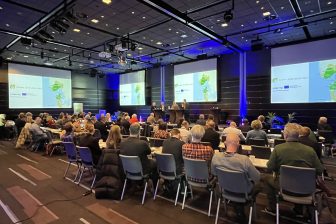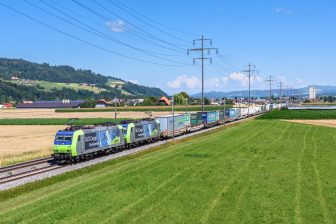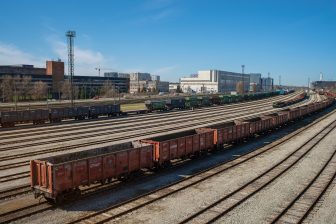Cost increase marshalling in the Netherlands investigated
Dutch State Secretary for Infrastructure and Water Management Stientje van Veldhoven will investigate the proposed cost increase for the use of the Kijfhoek marshalling yard and other railway yards in the Netherlands. Critics have argued that the raise would contradict the agreements made in the rail freight transport package of measures, drafted in June last year. Van Veldhoven said to analyse whether the price increase is line with the agreements made.
Last week it was announced that the rates for setting up and shunting single wagons at Kijfhoek will be increased by millions in the coming years. DB Cargo is currently the only user of Kijfhoek, a sorting station for individual cars in the Netherlands. Every day, between six hundred and seven hundred wagons are handled at the marshalling yard.
Critique
SP Member of Parliament Cem Laçin asked Van Veldhoven last Thursday in a parliamentary debate for clarification about the adjustments proposed by infrastructure manager ProRail. Van Veldhoven was taken by surprise, but promised to include a response in a letter about the package of rail freight transport measures planned for June. “This is also new for us. We are going to sort it out”, the minister said.
DB Cargo reported to our sister publication SpoorPro last week that the tariff increase “ directly contradicts the package of rail freight transport measures”. In these agreements, the rail sector, ProRail and the ministry made agreements to promote the competitive position of rail freight transport. To support the sector, the ministry will make an additional 12 to 14 million Euros available each year until 2023. According to the rail freight operator, part of this money is now being swallowed up by the increase in the rates for setting up trains.
Earlier change
Earlier, the sector learnt that from 2020 onwards, carriers would start paying per minute instead of per day for setting up trains on marshalling grounds. Now, setting up a train is free for the first four hours. In addition, costs are calculated based on the length of the track that is taken into use. According to DB Cargo spokesperson Jelle Rebbers, rail freight operators are at disadvantage with this: “You have to wait regularly at a terminal and as a carrier you do not always influence this. For example, a delay of another carrier could extend the waiting time.”
According to ProRail, marshalling activity is becoming cheaper for the rail freight sector if you look at the total costs because “short marshalling at previously cheap locations becomes more expensive” and “more expensive locations for longer marshalling actually becomes cheaper”.
A calculation made by interest group RailGood shows that indeed, the rates will decrease in 2020 for A and B locations (Maasvlakte West, Maasvlakte West-west, Maasvlakte East, Europoort, Botlet and Pernis), compared to the rates for a longer stay this year. But according to Hans-Willem Vroon of RailGood, these locations are not suitable for long stays. “These are yards with a shortage and where it is important to move on quickly. That is precisely what the rental tracks are for, but those rates are actually becoming more expensive.”
Reliability and availability
According to Vroon, it is logical that the rates at Kijfhoek are going up because they are currently “reasonably cheap”, although according to him, the infrastructure needs to be put in order first. “The infrastructure in the port of Rotterdam is constantly disturbing. If you raise prices, then you must also ensure that the quality is up to standard. The reliability and availability must increase. What is happening now is that from time to time there is a huge price increase, while the quality of the infrastructure is not competitive and leaves something to be desired. There must be a fair price-quality ratio. ProRail does not look at that, nor at a fair playing field with road transport and inland shipping.”
Last summer, ProRail stopped activities at Kijfhoek after several accidents at the marshalling yard. The Human Environment and Transport Inspectorate concluded that safety procedures were not being observed. As a result of the incidents, ProRail appointed a manager for the safe operation of Kijfhoek goods handling, who is responsible, among other things, for a structural improvement plan and the restoration of a good relationship of trust with partners and the environment.





